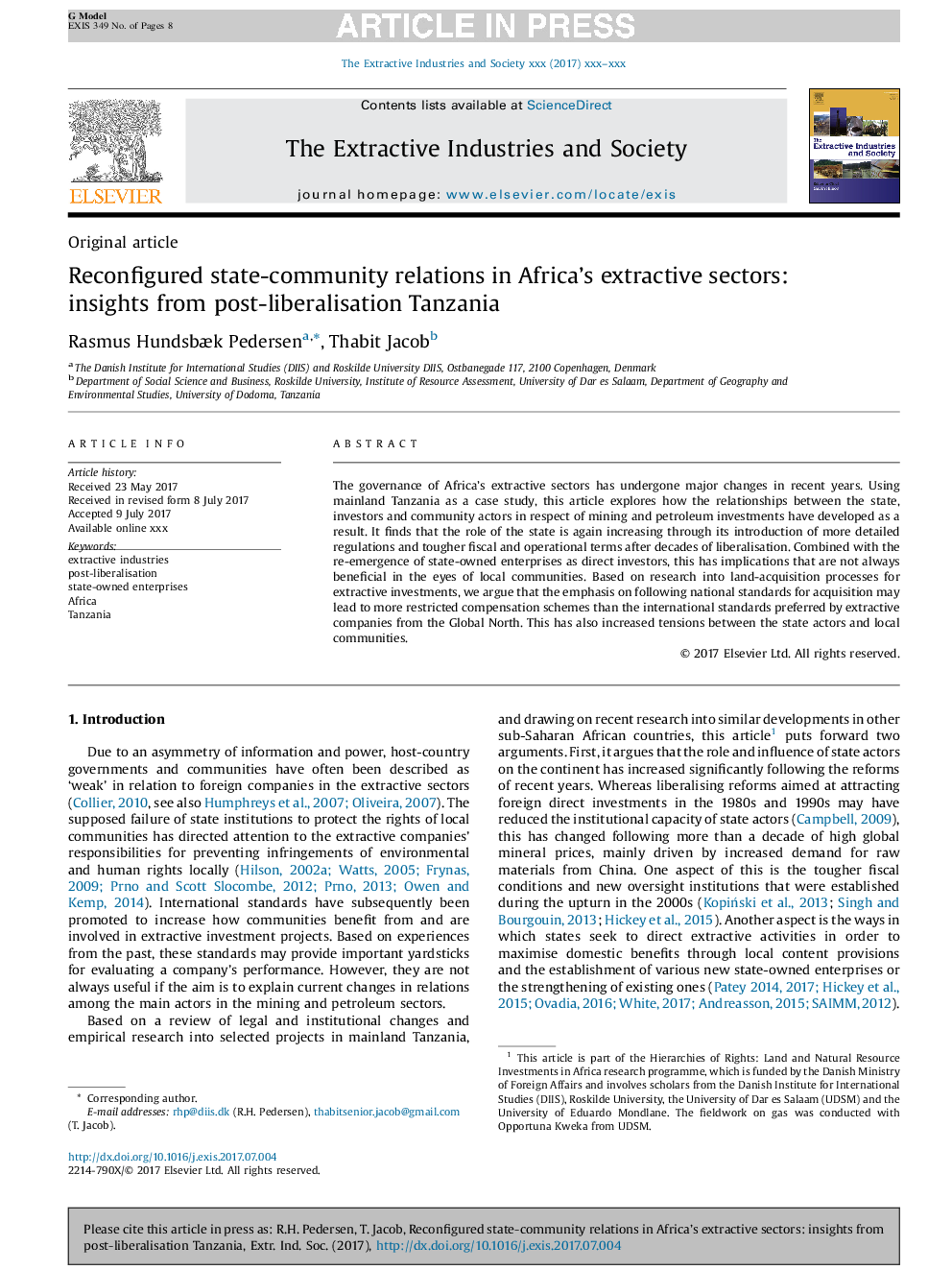| Article ID | Journal | Published Year | Pages | File Type |
|---|---|---|---|---|
| 7454410 | The Extractive Industries and Society | 2017 | 8 Pages |
Abstract
The governance of Africa's extractive sectors has undergone major changes in recent years. Using mainland Tanzania as a case study, this article explores how the relationships between the state, investors and community actors in respect of mining and petroleum investments have developed as a result. It finds that the role of the state is again increasing through its introduction of more detailed regulations and tougher fiscal and operational terms after decades of liberalisation. Combined with the re-emergence of state-owned enterprises as direct investors, this has implications that are not always beneficial in the eyes of local communities. Based on research into land-acquisition processes for extractive investments, we argue that the emphasis on following national standards for acquisition may lead to more restricted compensation schemes than the international standards preferred by extractive companies from the Global North. This has also increased tensions between the state actors and local communities.
Related Topics
Life Sciences
Environmental Science
Management, Monitoring, Policy and Law
Authors
Rasmus Hundsbæk Pedersen, Thabit Jacob,
